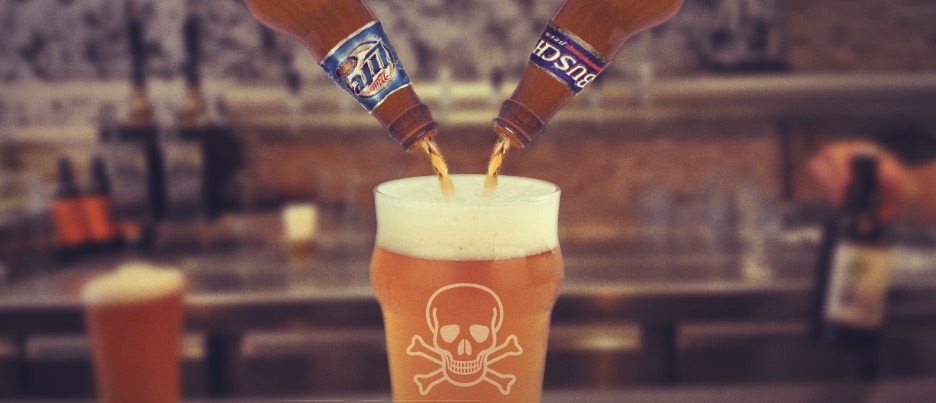Beware the Monster Brew

One of my favorite childhood memories was popcorn, a bottle of pop, and watching King Kong battle Godzilla on late night television. You always had a favorite, depending on your proclivity for apes or lizards, and there was always a clear winner and loser. No resident of Tokyo would ever imagine that the two giants would join forces and go after them.
I am now older.
And like it or not, the public relation wheels are beginning to turn on one of the largest corporate mergers of all time: Anheuser-Busch InBev and SAB Miller. If the deal successfully negotiates through a sea of antitrust matters, they would form a company worth $276 billion. Obviously, AB’s “Macro Brew” campaign would morph into a “Mega Brew” campaign.
Imagine the two classic giants, Budweiser and Miller, under the same roof. The combined parent company would control more than 75% of the U.S. beer market. In reality, U.S. antitrust rules would force SAB Miller to divest some brands – such as their part of the MillerCoors venture. Nonetheless, this doesn’t seem all that advantageous for the North American beer drinker.
Who could take advantage? Craft breweries. (Sounds of angels singing.)
Craft breweries, organically positioned against the “big boys,” would strengthened their station. Goliath would be bigger, uglier, and would probably have fewer friends. On the surface, I don’t understand the appeal of buying beverages from AB InBev or SAB Miller when they market themselves as “Macro.” Millions of gallons of cheap ingredients don’t especially jive with flavor, body, or nuance of hop.
What does make sense is the local/regional food movement. I’m eating and drinking of the land where I live. The bread, the meat, and the beer are crafted by people fully invested in the process. Even if I pull a New Belgium off the shelf, I still gain the advantage of a local passion. I’m drinking a little bottle of love from Colorado. It especially doesn’t make sense when AB and Miller forever try to mimic craft brews with “small” spinoff brands, or buying up local breweries.
For the food and beverage world, there is an inherent flaw with “bigger is better” thinking. Does it help the manufacturer increase profits? Yes. Help economies of scale? Yes. But does it enhance the benefit consumers get from eating and drinking excellent foods? No.
This is like a car manufacturer thinking that – in today’s world of smaller, more efficient cars – welding two Hummers together into a “SuperHummer” would be what consumers want. Both of these huge companies have already diluted their brand values to damaging levels; I could only imagine what the perception of this merger will do. They control the product. They control distribution. They control the consumers. The opposite of tasteful.
Indeed, this could be a moment for the world of craft brewing.
And they don’t need to make all kinds of noise, or go mudslinging, but simply underline the independent passion that drives brewers – like our client, Lakefront Brewery – to keep providing the world with exceptional beers; to keep having fun with a healthy, growing industry. It should be interesting how this changes the landscape of craft distribution, however.
Personally, I don’t like the idea of King Kong with a Godzilla tail, but according to industry analysts, this merger will be “largely irrelevant” to consumers. I guess I have more faith in a consumer population that’s becoming more and more discerning, and not to mention, more disenchanted with corporate monsters.

